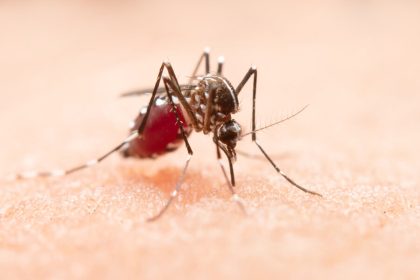Colds and flu are common viral infections that affect the respiratory system.
They can cause symptoms such as coughing, sneezing, sore throat, fever, headache, and body aches.
While there is no cure for colds and flu, there are some natural remedies that can help you relieve the symptoms and boost your immune system.
In this article, we will explore what are colds and flu, what are the symptoms and causes of colds and flu, and 8 best natural remedies for colds and flu.
Colds and flu are caused by different types of viruses that infect the nose, throat, and lungs.
Colds are usually milder and last for a shorter time than flu.
Flu can sometimes lead to serious complications, such as pneumonia, bronchitis, or sinus infections.
Colds and flu are contagious and can spread through direct contact with an infected person or through droplets in the air when they cough or sneeze.
Symptoms and Causes
The symptoms of colds and flu can vary depending on the type of virus and the person’s health condition.
However, some common symptoms include:
- Coughing
- Sneezing
- Runny or stuffy nose
- Sore throat
- Fever
- Headache
- Body aches
- Fatigue
- Loss of appetite
- Nausea or vomiting
The causes of colds and flu are mainly exposure to the viruses that cause them.
The viruses can enter the body through the mouth, nose, or eyes when you touch an infected surface or breathe in the droplets from an infected person.
Some factors that can increase the risk of getting colds and flu are:
- Having a weak immune system
- Being stressed or tired
- Having a chronic medical condition, such as asthma, diabetes, or heart disease
- Being pregnant or elderly
- Smoking or being exposed to secondhand smoke
- Being in close contact with people who have colds or flu
18 Best Natural Remedies for Colds and Flu
While there is no specific treatment for colds and flu, there are some natural remedies that can help you ease the symptoms and speed up the recovery.
Here are 18 best natural remedies for colds and flu that you can try at home:
1. Drink plenty of fluids
Drinking plenty of fluids can help you stay hydrated and thin the mucus in your respiratory tract.
This can help you clear the congestion and soothe the irritation.
You can drink water, herbal teas, soups, broths, or juices.
Avoid caffeinated or alcoholic beverages, as they can dehydrate you and worsen the symptoms.
2. Use honey and lemon
Honey and lemon are two natural ingredients that have antibacterial, antiviral, and anti-inflammatory properties.
They can help you fight the infection and reduce the cough and sore throat.
You can mix a teaspoon of honey and a squeeze of lemon in a cup of warm water and drink it several times a day.
You can also add some ginger or cinnamon for extra flavor and benefits.
3. Try garlic and onion
Garlic and onion are rich in sulfur compounds that have antimicrobial and immune-boosting effects.
They can help you kill the viruses and bacteria that cause colds and flu and stimulate the production of white blood cells that fight the infection.
You can eat raw garlic and onion, or add them to your dishes.
You can also make a garlic and onion soup by simmering them in water with some salt and pepper for about 20 minutes and then straining and drinking the broth.
4. Use steam inhalation
Steam inhalation can help you loosen the mucus and relieve the congestion and inflammation in your nose and throat.
You can use plain water or add some essential oils, such as eucalyptus, peppermint, or lavender, that have antiseptic and decongestant effects.
You can boil some water in a pot and then remove it from the heat.
Add a few drops of the essential oil of your choice and inhale the steam for about 10 minutes.
You can cover your head with a towel to trap the steam.
Be careful not to burn yourself with the hot water or steam.
5. Apply a warm compress
A warm compress can help you reduce the pain and swelling in your sinuses and forehead.
You can use a hot water bottle, a heating pad, or a warm cloth.
Apply the warm compress to your face for about 15 minutes, several times a day.
You can also massage your face gently with your fingers to stimulate the blood flow and drainage.
6. Take vitamin C and zinc
Vitamin C and zinc are two nutrients that can help you enhance your immune system and fight the infection.
Vitamin C can also help you reduce the duration and severity of the symptoms.
You can get vitamin C and zinc from foods, such as citrus fruits, berries, peppers, broccoli, spinach, nuts, seeds, beans, and meat.
You can also take supplements, but consult your doctor before doing so, as they may have some side effects or interactions with other medications.
7. Use echinacea and elderberry
Echinacea and elderberry are two herbs that have antiviral and immunomodulatory effects.
They can help you prevent and treat colds and flu by inhibiting the replication of the viruses and stimulating the immune response.
You can take echinacea and elderberry in the form of tea, tincture, syrup, or capsules.
Follow the instructions on the label and consult your doctor before using them, especially if you have an autoimmune disorder or are allergic to plants in the same family.
8. Probiotics
Supporting gut health is crucial for a robust immune system. Probiotics, found in fermented foods or supplements, introduce beneficial bacteria to your digestive system.
Contributing to overall immune function.
9. Chicken Soup
Grandmothers around the world have sworn by the healing powers of chicken soup, and they were onto something.
Beyond its comforting warmth, chicken soup can help relieve congestion and provide essential nutrients that support the immune system during illness.
10. Rest and relax
Rest and relaxation are essential for your recovery and well-being.
They can help you conserve your energy and allow your body to heal itself.
Try to get enough sleep, at least 7 to 8 hours a night, and avoid strenuous activities.
You can also practice some relaxation techniques, such as meditation, yoga, or breathing exercises, to reduce your stress and improve your mood.
11. Turmeric
Curcumin, the active compound in turmeric, boasts anti-inflammatory and antioxidant properties.
Adding turmeric to your meals or consuming it as a warm turmeric tea can help alleviate symptoms.
12. Elderberry Syrup
Elderberries are rich in antioxidants and have been used traditionally to support the immune system.
Elderberry syrup is a popular remedy to reduce the severity and duration of cold and flu symptoms.
13. Oregano Oil
Oregano oil contains compounds with antimicrobial properties.
It can be taken orally (in small amounts) or diffused to help combat respiratory infections.
14. Peppermint Tea
Peppermint tea not only provides soothing relief for a sore throat but also has menthol, which can help alleviate nasal congestion and improve breathing.
15. Apple Cider Vinegar
Known for its antimicrobial properties, apple cider vinegar can be diluted in warm water and consumed to help fight infections and support overall health.
16. Propolis
Produced by bees, propolis is a resin with antimicrobial properties.
Propolis supplements or tinctures can be considered for immune support.
17. Zinc-Rich Foods
Zinc is essential for immune function.
Foods like pumpkin seeds, lentils, and chickpeas are rich in zinc and can be included in your diet to support your immune system.
18. Cinnamon
Cinnamon has antimicrobial properties and can be added to teas or meals to enhance flavor while providing potential health benefits.
How to Treat Colds and Flu
In addition to the natural remedies mentioned above, there are some other things that you can do to treat colds and flu and prevent the complications. These include:
Taking over-the-counter medications, such as painkillers, antihistamines, decongestants, or cough suppressants, to relieve the symptoms.
However, be careful not to overdose or mix them with other drugs.
Also, avoid giving aspirin to children or teenagers, as it can cause a rare but serious condition called Reye’s syndrome.
Using nasal sprays or drops, such as saline or xylitol, to moisten and clear the nasal passages.
However, do not use them for more than a few days, as they can cause rebound congestion or damage the nasal lining.
Gargling with salt water or baking soda to soothe the sore throat and kill the germs.
You can make a simple gargle by dissolving a teaspoon of salt or baking soda in a glass of warm water and gargling for a few seconds, several times a day.
Using a humidifier or vaporizer to add moisture to the air and ease the breathing.
However, make sure to clean and disinfect the device regularly to prevent the growth of mold and bacteria.
Washing your hands frequently and thoroughly with soap and water or using an alcohol-based sanitizer to prevent the spread of the infection.
Also, avoid touching your eyes, nose, or mouth with unwashed hands.
Covering your mouth and nose with a tissue or your elbow when you cough or sneeze and disposing of the tissue properly.
Also, avoid sharing your personal items, such as cups, utensils, or towels, with others.
Staying at home and isolating yourself from others until you are no longer contagious.
This can help you prevent infecting others and getting reinfected yourself.
The general rule is to stay at home until you are fever-free for at least 24 hours without taking any fever-reducing medications.
Conclusion
Colds and flu are common viral infections that can cause discomfort and inconvenience.
However, by using some natural remedies, such as fluids, honey, garlic, steam, vitamin C, echinacea, and rest, you can help yourself feel better and recover faster.
You can also take some preventive measures, such as washing your hands, covering your cough, and staying at home, to avoid getting or spreading the infection.
Remember to consult your doctor if you have any questions or concerns, or if your symptoms worsen or persist for more than a week.
FAQs
What is the difference between a cold and the flu?
Colds and flu are both respiratory illnesses, but they are caused by different viruses.
Colds are usually milder and may involve symptoms like a runny or stuffy nose, sneezing, and a sore throat.
The flu, on the other hand, is often more severe and can cause symptoms such as high fever, body aches, fatigue, and respiratory issues.
Can natural remedies really help with colds and flu symptoms?
Yes, many natural remedies have properties that can help alleviate cold and flu symptoms.
Ingredients like honey, ginger, and herbal teas have been traditionally used for their soothing and immune-boosting effects, providing relief from various symptoms.
How effective is elderberry syrup in treating the flu?
Elderberry syrup has gained popularity for its potential to reduce the severity and duration of flu symptoms.
Rich in antioxidants, elderberry syrup may help support the immune system and provide relief from respiratory symptoms associated with the flu.
Are these natural remedies safe for children?
While many natural remedies are generally safe for children, it’s crucial to use age-appropriate dosages and choose remedies suitable for their age.
Honey, for instance, should not be given to children under the age of one.
Consult with a pediatrician before introducing new remedies to a child’s healthcare routine.
Can I use these remedies if I have pre-existing health conditions?
Individuals with pre-existing health conditions should consult their healthcare provider before trying new remedies.
As some ingredients may interact with medications or exacerbate certain health conditions.
This precaution is especially important for pregnant individuals or those with chronic illnesses.
How long should I try these natural remedies before seeking medical attention?
Natural remedies can provide relief for mild to moderate symptoms.
However, if symptoms persist, worsen, or if you experience severe respiratory distress, high fever, or other concerning symptoms, it’s essential to seek medical attention promptly.
Natural remedies are complementary and should not replace professional medical advice when needed.





